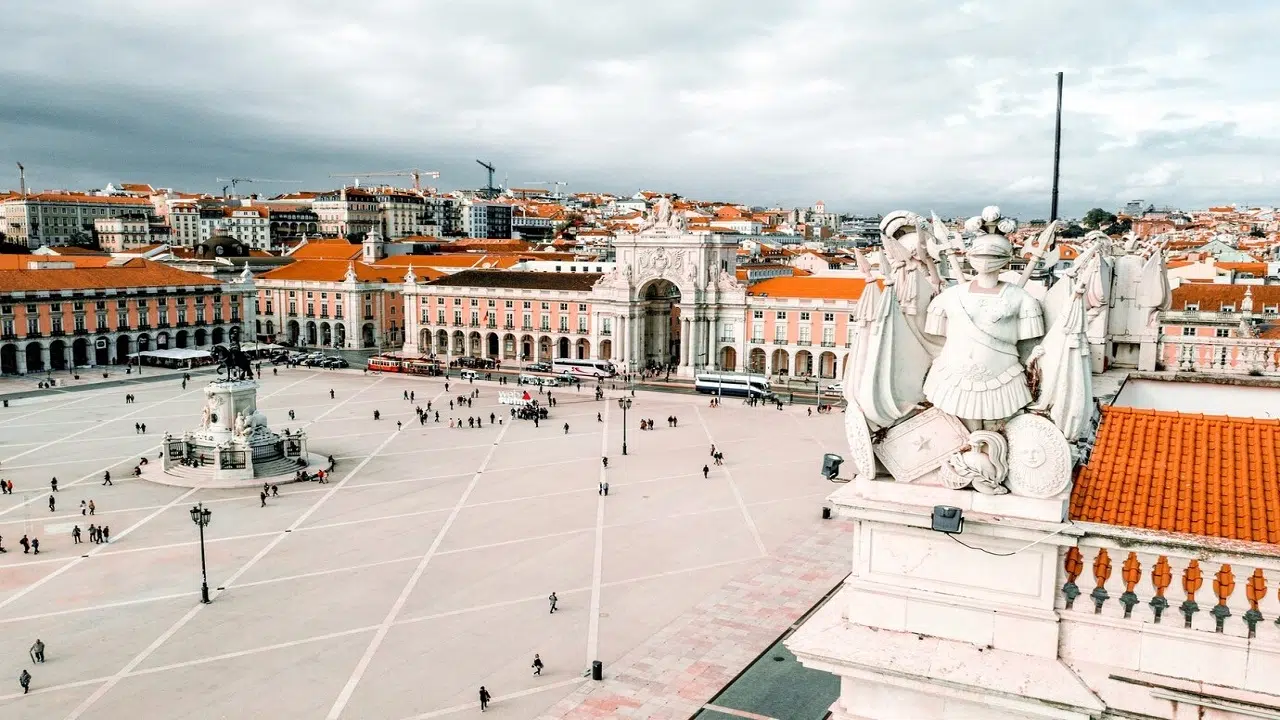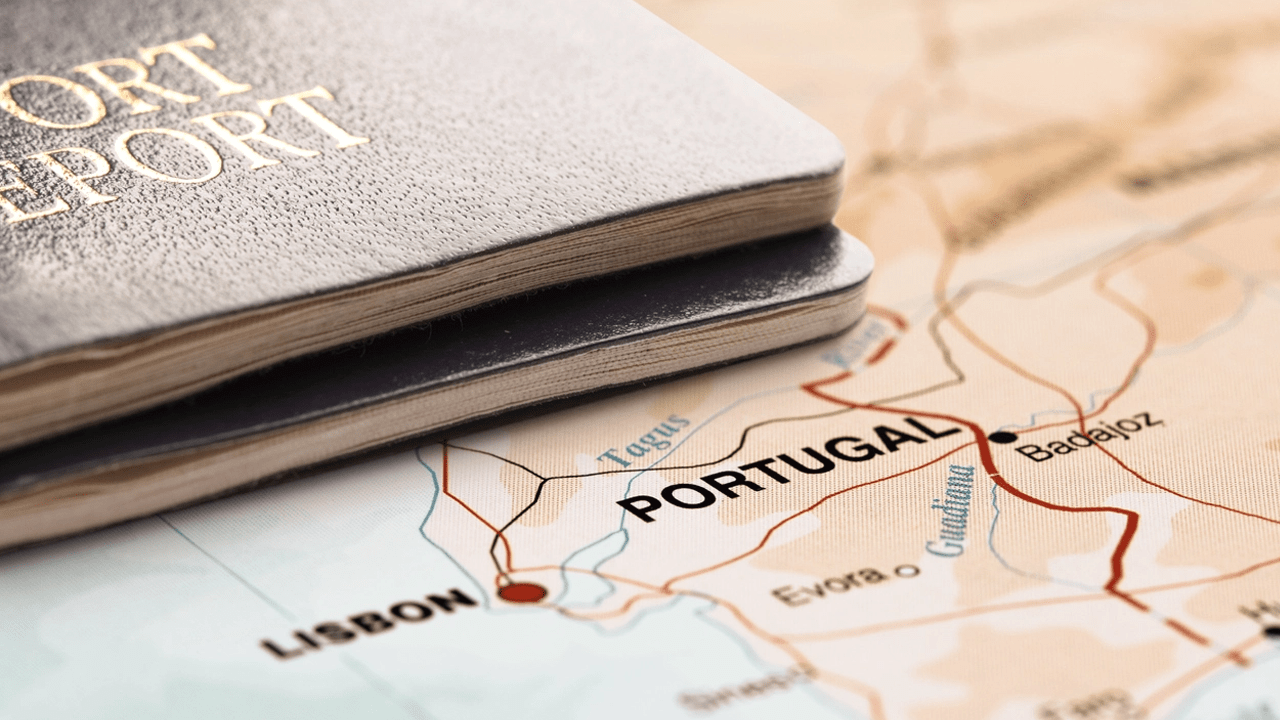When comparing The Portugal Golden Visa VS D7 Visa are popular residency options allowing foreigners to live, work, and invest in Portugal. Each caters to different types of applicants. While the Golden Visa is designed for investors requiring a stay of seven days per year in Portugal, the D7 Visa is aimed at individuals with a stable income source, such as retirees, digital nomads, and freelancers, requiring a longer stay in the country each year.
Both the Golden Visa and D7 Visa offer a pathway to citizenship and obtaining a passport after five years. However, they differ significantly in terms of eligibility, investment commitments, and lifestyle requirements. Choosing between them depends on one’s financial situation, long-term plans, and lifestyle preferences. Therefore, it is crucial to understand each program’s specific advantages and obligations.
What is a Portugal Golden Visa?
**Portugal Golden Visa VS D7 Visa**, the Golden Visa program is designed primarily for investors and offers residency through qualifying investments, such as capital transfers or business ventures. This visa option is ideal for individuals seeking a fast-track route to residency with flexibility in terms of physical presence requirements, as it typically only requires a stay of seven days per year in Portugal.
What is a D7 Visa?
The D7 Visa also called the passive income visa, is aimed at those with a stable income source, such as pensions, rental income, or remote work. It is an excellent choice for retirees, digital nomads, and freelancers[1]. Unlike the Golden Visa, the D7 requires a longer stay in Portugal each year, supporting applicants who intend to establish a more permanent base there.

Portugal Golden Visa VS D7 Visa
When evaluating **Portugal Golden Visa VS D7 Visa**, each program has distinct requirements related to residency duration, investment obligations, and application procedures.
-
Stay requirement
The stay requirement is a key difference between the two programs. The D7 visa requires spending considerable time in Portugal, typically six to eight consecutive or non-consecutive months each year. This is reasonable, as the D7 visa is designed for those who intend to make Portugal their permanent home.
In contrast, the Portugal Golden Visa program offers much greater flexibility. Although they can stay in Portugal for as long as they like, they only need to spend seven days in the country each year to maintain their residency status.
For those with frequent travel needs, the stay requirement often becomes the deciding factor.
-
Investment or Income Requirement
Another key difference between the Portugal Golden Visa and the D7 visa lies in the financial requirements. The D7 visa requires applicants[2] to provide proof of regular passive income of at least €12,000.00 per year, which can come from sources such as intellectual property rights, dividends, interest, property rentals, or pensions. If dependents are included, an additional 50% of this income amount is required for a spouse and 30% for each dependent. While these income levels are indicative, immigration officers may exercise discretion, so demonstrating a higher income can strengthen the application.
In contrast, the Portugal Golden Visa does not require proof of regular income. Instead, applicants must make a qualifying investment, usually ranging from €250,000 to €500,000, depending on the type of investment. Investors should keep the investment for a minimum of five years.
In both cases, the investment or income liability ends directly after the visa holders get their permanent citizenship or residence after five years.
-
Application Procedure
For the D7 Visa, the application process begins in the home country. One key requirement is providing “proof of accommodation”. This can be challenging, especially if the applicant hasn’t decided on a specific city or region in Portugal yet. However, If you have friends or relatives in Portugal, they can provide a formal statement confirming you’ll stay with them. Alternatively, you may need to rent or purchase property before submitting your application. Once you receive the initial visa from the Portuguese embassy, you’ll need to travel to Portugal to complete the final steps of the D7 Visa application.
On the contrary, the process for the Portugal Golden Visa is generally more streamlined. After making the qualifying investment, you can proceed with the application without any need to provide proof of accommodation.
-
Eligibility criteria
There is a set of criteria to be eligible for the Portugal D7 Visa. Applicants should meet the following requirements[3]:
- Being a non-EU national,
- Have the funds to support yourself during your stay in Portugal,
- Have a clean criminal record
- Having a valid health insurance policy
- Can show a residence address in Portugal,
- Able to spend at least 16 months in Portugal during the first 2-year period.
It is crucial to note that opening a bank account in Portugal is a prerequisite for applying for the D7 or D8 Visa. Additionally, obtaining a Portuguese Tax Identification Number (NIF) is mandatory for these purposes.
To be eligible for the Golden Visa, applicants must meet several key criteria. These are the primary requirements:
- Be a non-EU/EEA/Swiss national.
- Make a qualifying investment in Portugal for 5 years.
- Have a clean criminal record.
- Hold valid health insurance.
- Obtain a Portuguese Tax ID (NIF) and open a Portuguese bank account.
- Fulfill minimum stay requirements: seven days in the first year, 14 days in each following two-year period.
-
Tax residency
D7 Visa holders become tax residents in Portugal[4] if they maintain their stay requirements, which may lead to worldwide income being taxed in Portugal. Golden Visa holders may not automatically be considered tax residents if they do not stay in Portugal for more than 183 days per year, which can be a tax advantage for some.
-
Processing Time
The process of obtaining a D7 Visa is typically faster, as it does not involve investment verifications. The average processing time is 3 to 6 months, though it varies by consulate and demand[5].
A Golden Visa generally has a longer processing time, sometimes 8–10 months, due to additional checks, including verifying investment transactions and documents.
-
Renewal Process
The D7 Visa holders get residence permits valid for 2 years and are required to reside in Portugal for at least 16 months in total within these 2 years to be eligible for a residence permit renewal. Five years later, they can apply for permanent residence or Portuguese citizenship if they still live in the country for the required amount of time. The rules are not stringent for Golden Visa holders, as they need to renew their residence permit every two years. They are eligible for permanent residence after five years.
-
Fees
The Portugal D7 Visa is more affordable than the Golden Visa, which has a hefty cost starting at €250,000. Below are the current processing fees, which are subject to change based on updates from the Portuguese immigration authorities.
- The entry visa application is €80, paid at the Portuguese consulate in the applicant’s home country.
- The residence permit fee is €170 for submission and issuance by AIMA in Portugal.
- The Portugal D7 application fee is roughly €90.
- The SEF appointment fee is around €156.
The main expenses for D7 applicants often include property rental or purchase and relocation costs.
The Portugal Golden Visa, on the other hand, has a primary cost associated with the required investment. Additionally, applicants should account for application and processing fees. Applicants can go from a D7 visa to a Golden visa if they are ready to make the necessary investment.
Which route to pick?
Portugal D7 Visa could be the right choice for an applicant when:
- His passive income is stable and steady
- He wants to spend most of his time in Portugal
- He does not want to make big investments right away
Portugal Golden Visa could be the right choice for an applicant when:
- He wants to have a good Plan B for the future
- He needs to keep the primary residence at some other place
- He is ready to make a major upfront investment in Portugal
When comparing **Portugal Golden Visa VS D7 Visa**, both offer unique benefits, attracting thousands of applicants each year. If you’re prepared to make Portugal your primary home and can meet the residency requirements, the D7 Visa could be an ideal option. However, if you prefer flexibility with your time in Portugal and want a strong “Plan B” for future residency, the Portugal Golden Visa may be the more suitable choice.
[1] https://www.portuguese-nationality.com/residency/the-d7-visa-portugal
[2] https://freshportugal.com/post/d7-and-d8-visa-requirements-procedures-and-documentation-
[3] https://freshportugal.com/post/d7-and-d8-visa-requirements-procedures-and-documentation-#:~:text=It%20is%20crucial%20to%20note,is%20mandatory%20for%20these%20purposes.
[4] https://getnifportugal.com/portugal-d7-visa/#:~:text=Attractive%20tax%20benefits,tax%20rate%2C%20for%20ten%20years.
[5] https://getnifportugal.com/portugal-d7-visa/#:~:text=Attractive%20tax%20benefits,tax%20rate%2C%20for%20ten%20years.

